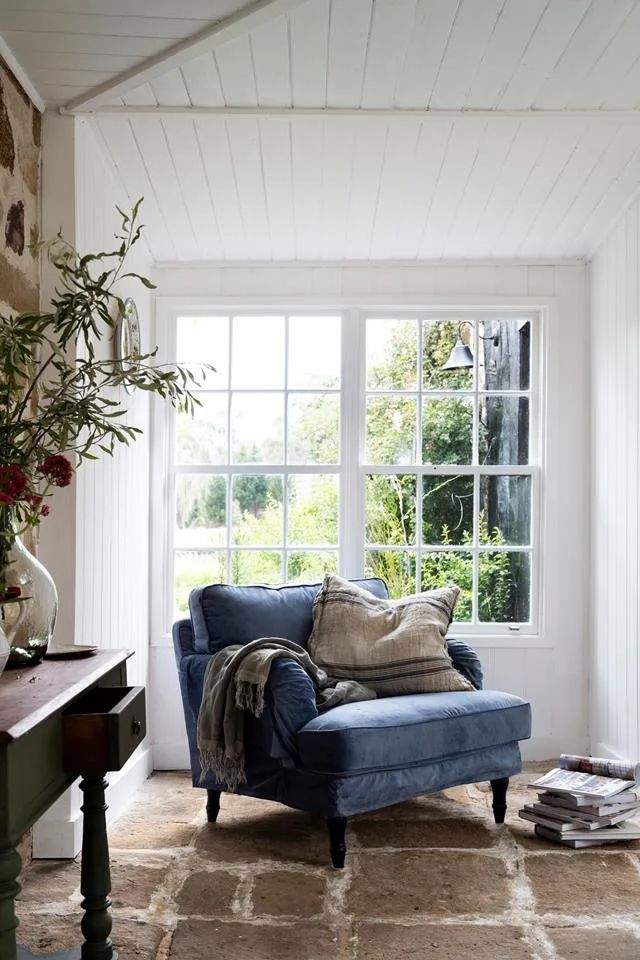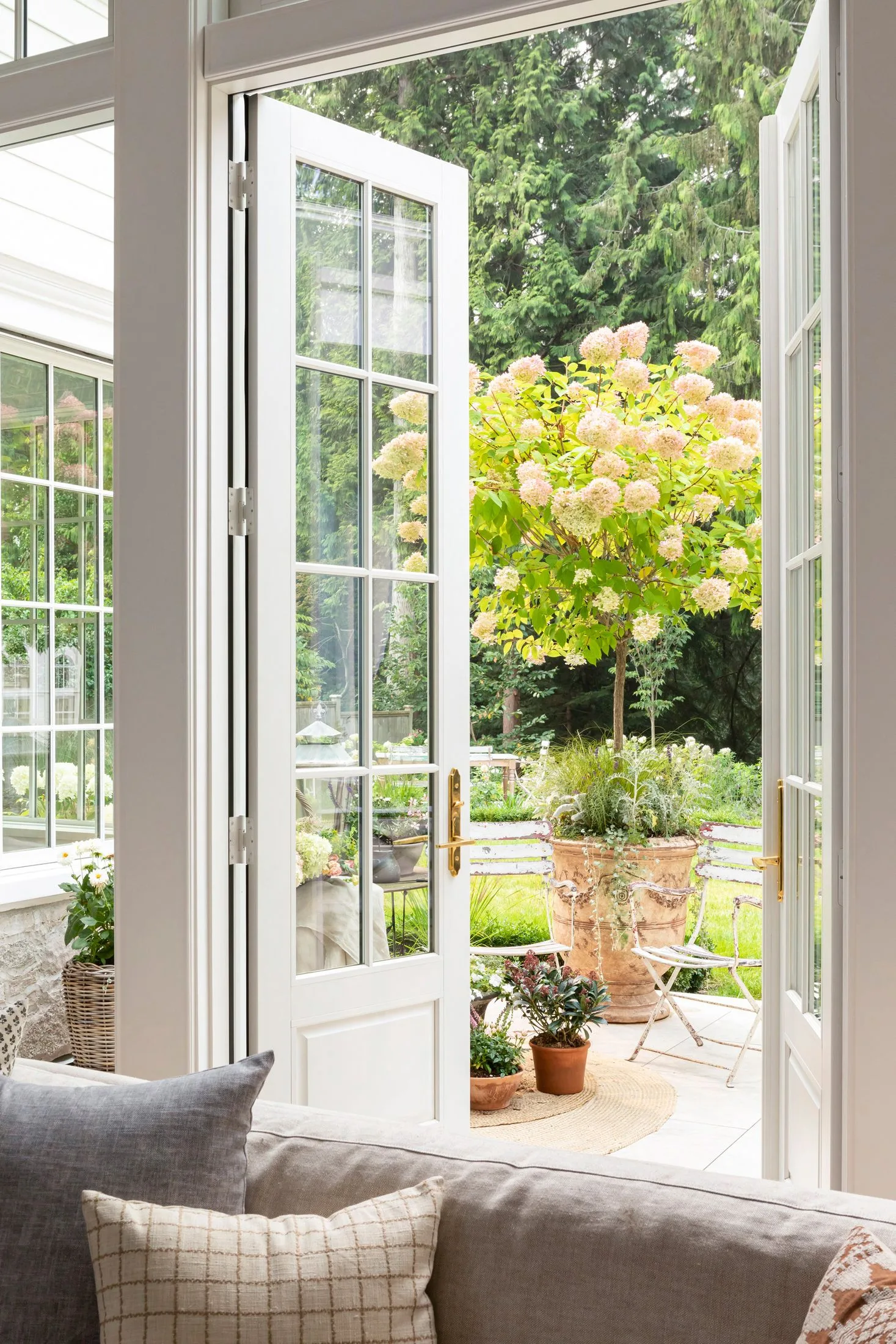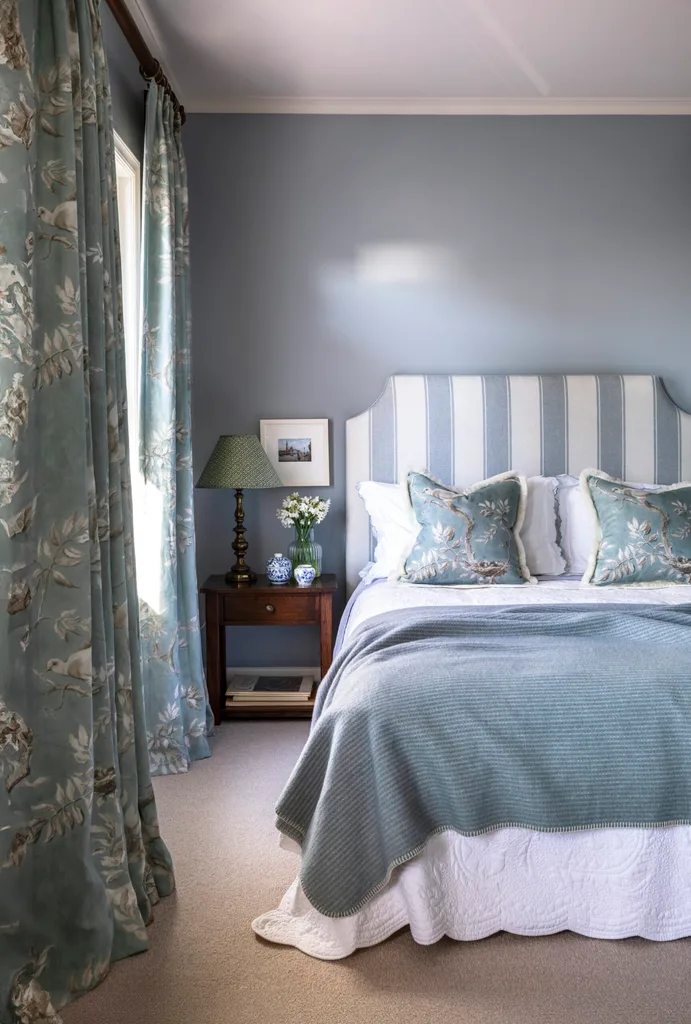Our homes are not just places for shelter, food and sleep. They also help us reconnect, recharge and relax. Try these tips and tricks to ensure your space is designed for you to feel your best.
1. Move your table
Place your table away from the TV so you’re encouraged to have screen-free time while eating. “Gather around the table to share a dish together, resist technology interrupting and use the time to engage with loved ones,” suggests stylist Tilly Roberts. Pop the phone away at night time, too; studies have shown the light from screens can disrupt our ability to drop off quickly, and affect the quality of essential sleep.

2. Create a sunny spot
Designate a sunshine-filled space in your home where you can retreat to read, meditate or relax. If possible, choose a spot with an open window and good natural light. “Select light linen or sheer curtains, instead of heavy shutters, to help bring in light,” says Justine Wilson, principal designer at Vault Interiors. “Promoting airflow will create a healthier home, as will natural light, as we all require vitamin D.”
3. Go for low-contrast interiors
“Contrast” has been a buzz word in makeup recently, with TikTok’s beauty influencers teaching us to choose low or high contrast makeup, depending on our features. Well, choosing low or high contrast decor can help you feel better, too. “To create a relaxed vibe, use a colour palette that’s fairly similar in both tone and colour, so it keeps things feeling open and fluid,” advises Wendy Rennie of Haymes Paint. High-contrast interiors are better for when you need a mood boost.

4. Make your home planet-friendly
Get organised with your composting and recycling. Reducing waste is not only good for the environment – knowing that you’re caring for the planet can help to create a personal sense of well-being, too. Cut back on plastics by investing in everyday items that you can use again and again, such as canvas shopping bags, reusable coffee cups and drink bottles.
5. Scent your space
Seek out aromas that have a calming influence, such as lavender, vanilla and rose, in the shape of dried flower sachets, essential oils, scented candles or diffusers.
6. Cultivate a green scene
Bringing the outdoors in can have more than just a visual benefit, says Justine. “Not only are plants beautiful, they stimulate other senses as well; think about the fragrance of gardenias, jasmine or begonias,” she says. “Growing herbs in the kitchen is good for the tastebuds and smells divine. Certain plants also help well-being by improving air quality and purifying the air. Palms, ferns or orchids are good options.”

7. Reduce the mess
Clearing clutter is an important step in creating a soothing aura in your surroundings. “Overcrowding of items can take away from the sense of your home as your sanctuary,” explains Tilly. “Have fewer items that mean a lot to you and that you love, and display them proudly on shelves where you get to appreciate them every day.”
8. Swap your sheets
For bedding, surround yourself in natural fabrics such as cotton and linen to help keep you cooler in summer and warmer in winter and contribute to that all-important good night’s sleep. “Collect linen in natural and muted tones to keep your bedroom calm and serene,” adds Tilly. Look for organically grown fabrics or cotton grown under the Better Cotton Initiative for extra sustainability points that will add to the feel-good factor.

9. Materials matter
“Wood is a dominant material with wellness design, along with recycled glass and earthy textures, such as stone,” says Justine. Choose material qualities and textures that make your feel good and grounded.
10. The quietness of colour
Relaxed, subtle hues create the perfect backdrop for a tranquil retreat. This is particularly important in the bedroom, where you need a sense of peace and serenity.
“My go-to colours to create a calming influence are pastels, whites and greys with warm tones,” says Wendy. “The other interesting combination is using a dark palette with low lighting as the ultimate time-out zone.”
This article originally appeared on Home Beautiful and is republished here with permission.







